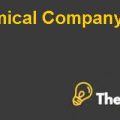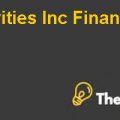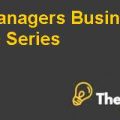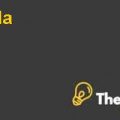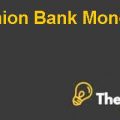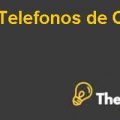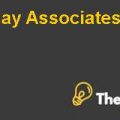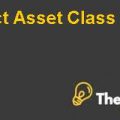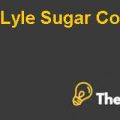
Question3.)
If the stock volatility was 0.39, then Microsoft’s share had a two-thirds probability of rising or falling by 39% or less over the next year. If the stock had risen 39% over the next year, what would have been the value of the options granted in question 1, and what would have been the value of the shares granted in question 2? If the stock had dropped 39% over the next year, what would have been the value of these shares and options? Assume that volatility, dividends, and the risk-free rate is unchanged.
Answer)
If the stock had raised by 39% over the next year the value of the option would be almost $5.8 billion, whilst in the case of shares the number would have been $173 million. But this would have been significantly lower if the stock had fallen by 39 % as this value would be $ 2.16 billion and the number of shares needed to raise this amount would be almost $129 million. As we can see that volatility has such a crucial impact on the value of options. Meanwhile, if someone is interested to invest in options than he should look for high volatility of the underlying assets on which the option has been written. Dividends are not assumed by the Black Scholes model, hence its impact would be in the value of the option but if a company has been paying constant dividends than this would definitely affect its share price.
|
Scenario 1 if the stock had risen 39% |
|
| Value of stock after rising |
$33.36 |
| Call Price |
$22.68349 |
| Value of Call Options |
$5,761,607,248 |
| After-tax Option Value |
$3,745,044,711 |
| Description | |
| Value added | 5,761,607,248 |
| Share price | 33.36 |
| Number of shares to be issued | 172,710,049 |
|
Scenario 1 if the stock had fallen by 39% |
|
| Value of stock after falling |
$16.75 |
| Call Price |
$8.50387 |
| Value of Call Options |
$2,159,983,911 |
| After-tax Option Value |
$1,403,989,542 |
| Description | |
| Value added | 2,159,983,911 |
| Share price | 16.75 |
| Number of shares to be issued | 128,982,755 |
Question4.)
Based on your answer to question 3, which would have been a better compensation policy for Microsoft: delivering and equal amount of economic value through shares or through the options? In reaching your conclusion, what goals and assumptions would have seemed most important to you?
Answer)
First, we need to understand what an option is and holding an option mean the holding a right to perform specific task, but not an obligation that a person has to buy or sell the stocks that he owns. This minimizes his risk that in case the market results are unfavorable than he might let the option lapse and do not buy or sell the stock thus saving him from the loss. Companies often use these “options” as part of their remuneration policy for the employee. These entitle the employee with an option that he can buy the shares of a company at a set price. This price is also known as the strike price. Options are mostly valued using the Black-Scholes option pricing model.
The good thing about giving options to the employee is that it aligns the interest of the employees with the interest of the companies. The primary objective of any listed company is to maximize shareholder's wealth to achieve this objective employee should focus on achieving the long term objectives of the company. The vesting period also known as the time taken for the option to be exercisable is normally more than 1 year hence the employee would focus on staying and performing for a long period of time in the company. This is in contrast to the traditional compensation program, which focuses more on achieving quarterly or monthly targets. This can lead to employees being more inclined toward achieving short term targets at the expense of the long term performance of the company.
Another benefit of giving options is that it helps in acquiring talented employees as options, add value to the remuneration package, moreover employers do not have to immediately pay high costs to hire employees as options would make their offered package look lucrative yet saving cash flows. The only major costs to the company are the missed opportunities to sell some stock at market value as employees buy them at a cheaper rate.
Some people claim that the advantages of stock option outweigh advantages. The very first drawback of options is that many employees tend to cash out their shares as soon as the exercise their option, by doing so they are no longer the shareholders of the company, this might shift their focus for performing to their best for the company, they also might want to diversify their earnings in other companies, in both the cases they do not remain the shareholder so any motivational value would be lost.
Additionally, one more critics on stock option plans is that they encourage the management in order to take excessive risk and in contrast to ordinary shareholders, employees who have stock options tend to exercise the options if they see again in stock price, but in the case when stock prices go down. The holder of call option would not exercise his option until the option is in the money i.e., the exercise price is higher than the market price of the underlying shares................................
This is just a sample partial case solution. Please place the order on the website to order your own originally done case solution.

